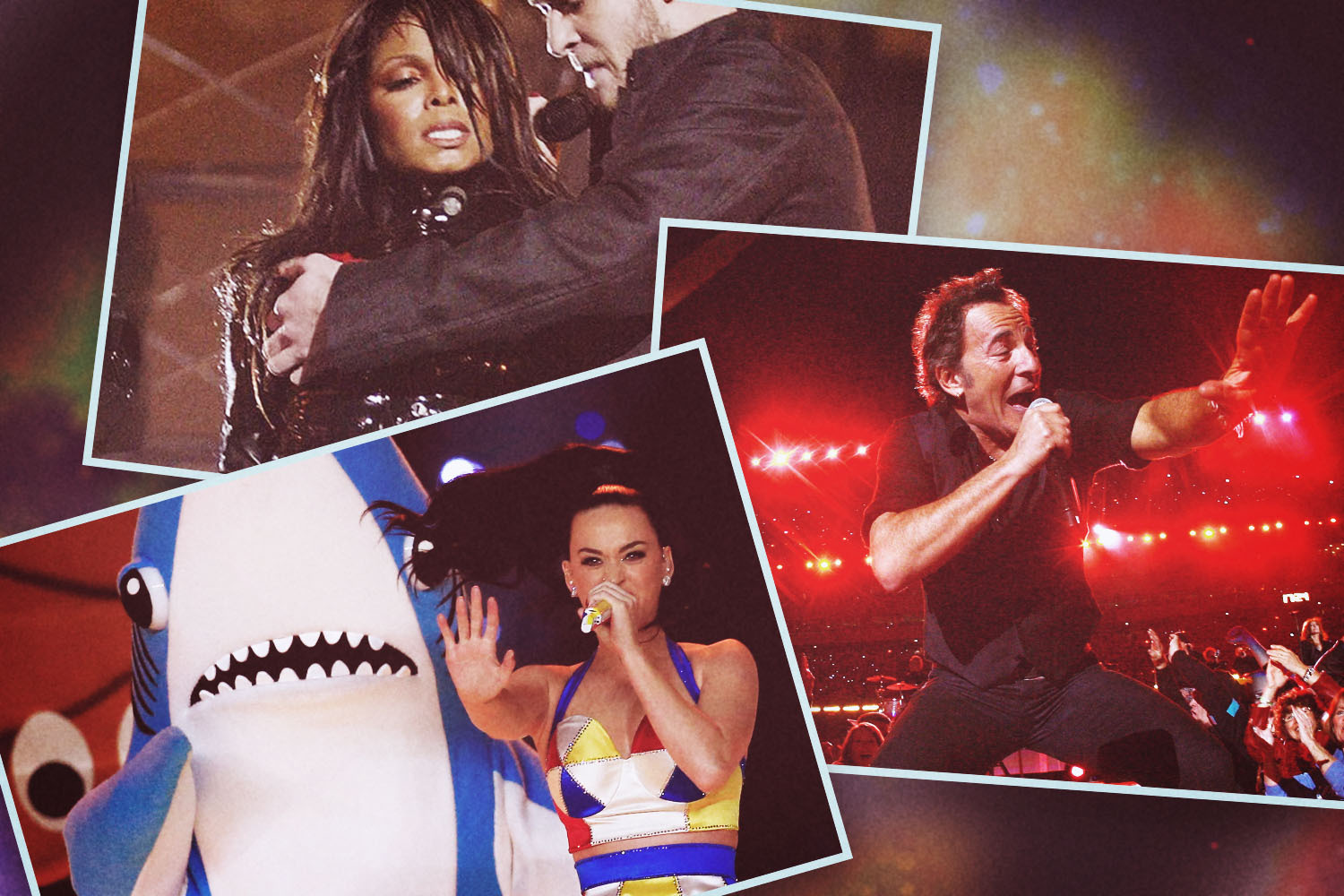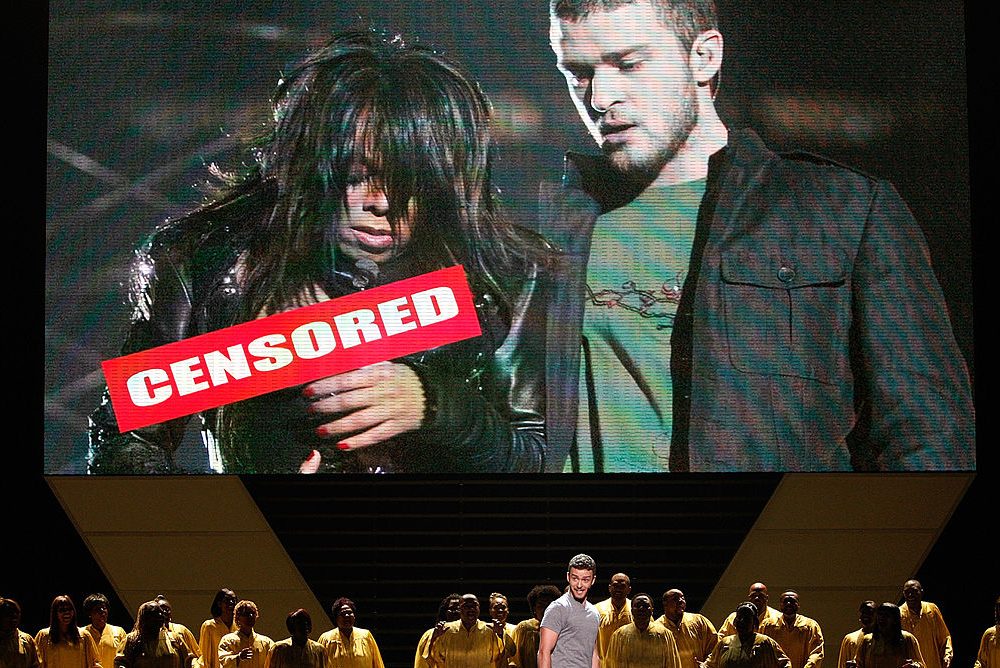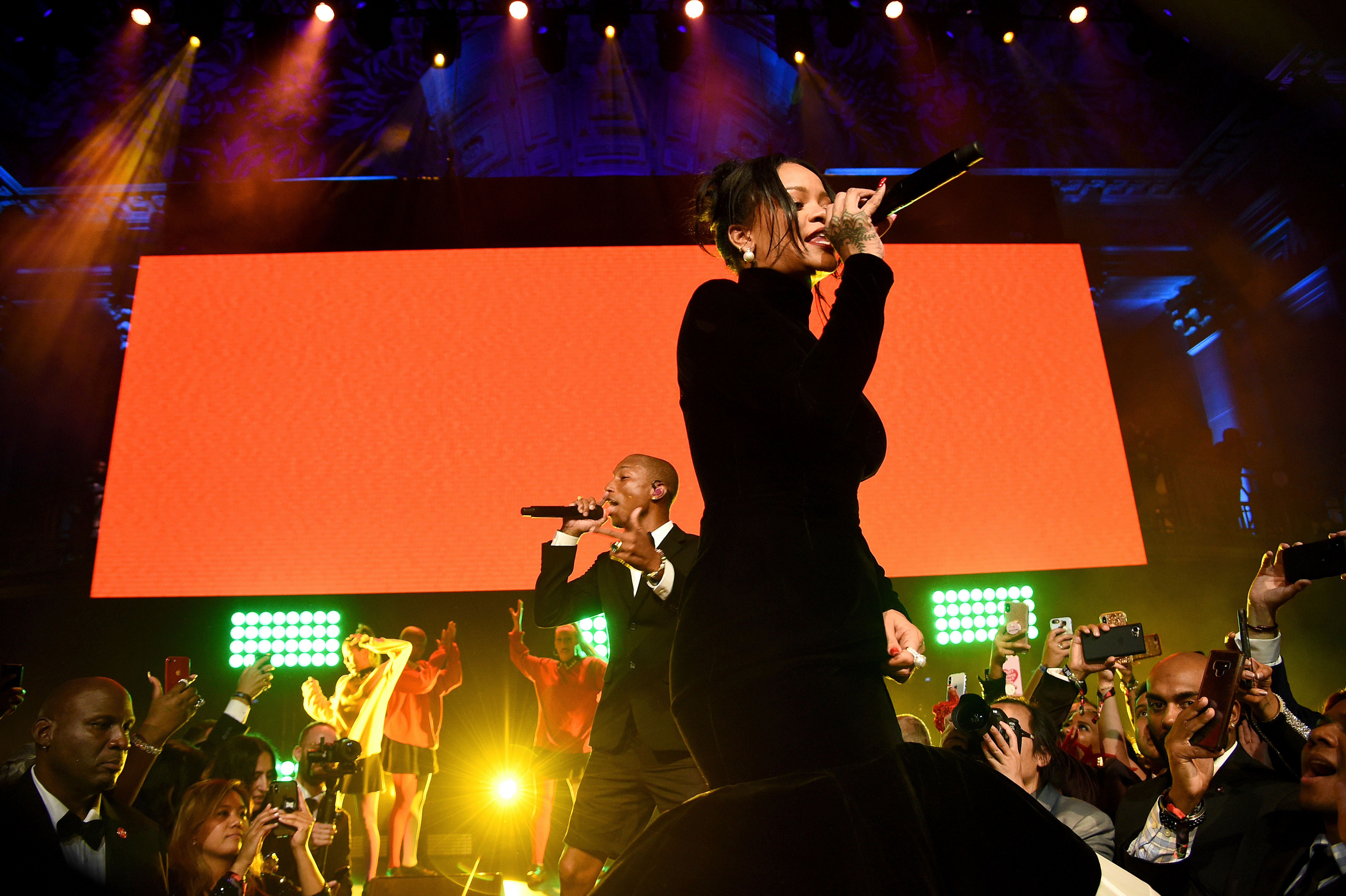Last night, hip-hop was finally front and center at the Super Bowl halftime show, as Dr. Dre was joined by Snoop Dogg, Kendrick Lamar, Eminem, 50 Cent and Mary J. Blige (along with Anderson .Paak, who made a brief appearance on drums). It was a long time coming for a league that has historically ignored the genre or relegated it to brief guest spots during more mainstream pop stars’ sets. But was it a genuine step in the right direction, or a calculated, sanitized PR move meant to deflect the accusations of racism that have long plagued the NFL?
There was one moment in particular that seemed to indicate the latter. While performing his Black Lives Matter anthem “Alright,” Kendrick Lamar’s line about police brutality in the track appeared to be censored. The word “po-po” was noticeably absent when Lamar delivered the line “And we hate po-po / Wanna kill us dead in the street fo sho.” (It’s unclear whether the NFL or NBC censored the line or Lamar simply self-censored, but the latter seems unlikely — and even if it were the case, the fact that he’d at all feel compelled to do so speaks volumes about the racially complicated performance environment the halftime show has proven itself to be.)
Can we really celebrate the NFL for embracing rap — decades late, of course — as some sort of gesture of goodwill to Black performers when Lamar’s message about police brutality is silenced? Did someone seriously think “don’t include the line about cops murdering unarmed Black people” was good advice for a performance meant to distract us from the not-so-distant past when Colin Kaepernick was pushed out of the league for protesting that very same issue?
Dr. Dre’s line about “still not loving police” from 1999’s “Still D.R.E.” did, however, make it into the show, but “not loving” is of course a much milder critique than “hate,” and if anything it’s a reminder of how the same issues being rapped about more than 20 years ago are still sadly prevalent. The set also included a brief nod to Kaepernick from Eminem, who kneeled during his performance of “Lose Yourself.” Despite initial rumors that the league asked him not to take a knee during the song, a representative for the NFL was quick to insist that they knew about it in advance and were cool with it.
“We watched every rehearsal this week and these elements were included,” an NFL statement read. “As you know, no player, coach or personnel member has been sanctioned for taking a knee so there would be no reason for us to tell a performer he or she could not for whatever reason.”
On the one hand, Eminem’s decision to kneel was an important display of allyship. But it’s hard not to wonder whether the reaction would be the same if one of the Black performers onstage had kneeled instead. Without any added context or explanation, limiting the kneeling to the sole white guy feels a bit like an empty gesture — or perhaps the one that was deemed the most palatable by the powers that be as some sort of compromise. His body language kept it vague, too; with his head in his hands, rather than in any sort of defiant show of solidarity, the kneel could have easily been misinterpreted as Eminem simply dramatically emoting while performing his song. As Jemele Hill pointed out on Twitter, the moment would be made all the more significant if the rapper came out and explicitly said that he was kneeling in support of racial justice.
It’s complicated, to be sure. There’s a difference between celebrating Black culture and tokenizing it in order to distract people from the very high-profile racial discrimination lawsuit you’re currently facing, and we have to question the NFL’s motives here. Of course, inviting more Black performers to play the halftime show, an event that has historically catered to white Baby Boomers, is an objectively good thing on its face, and we have to hope that this year’s show sets the tone for further diversity and inclusion in Super Bowls to come. But to do so while also presenting a tamer, watered-down version of their message that erases anything that some may see as controversial only confirms everyone’s suspicions that perhaps this performance was less about honoring Black culture and more about the NFL insisting to the world that they can’t possibly be racist because they have Black friends.
Thanks for reading InsideHook. Sign up for our daily newsletter and be in the know.

















